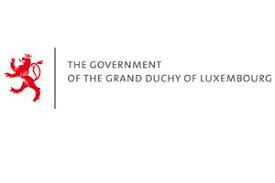The nine PEFA Partners – the European Commission, the International Monetary Fund (IMF), the World Bank, and the governments of France, Luxembourg, Norway, Slovak Republic, Switzerland, and United Kingdom – met in Washington, D.C. on December 12—13, 2019 to assess the implementation of the PEFA program and approve activities for calendar year 2020. The meeting was chaired by the IMF.
The PEFA partners endorsed the launch of the PEFA supplementary framework for assessing gender responsive public financial management. The framework is a set of supplementary indicators that builds on the PEFA framework to collect information on the degree to which a country’s public financial management (PFM) system addresses the governments’ goals with regard to acknowledging different needs of men and women and promoting gender equality. The framework has been piloted tested in eight countries – Antigua and Barbuda, Anguilla, Fiji, Haiti, Indonesia, St Lucia, Tonga, and Ukraine – and will be officially launched in January 2020.
PEFA partners agreed to continued piloting of on agile approach to PEFA assessments. The PEFA Secretariat has developed an agile approach to the PEFA process and PEFA report format. This includes a revised recommended timeframe, simplified concept notes, a revised data collection template and collation of key data prior to the field work, and simplified, but more rigorous evidence-based, PEFA report template. The agile PEFA was pilot tested in the Kingdom of Tonga together with the IMF’s Pacific Financial Technical Assistance Center (PFTAC). Using the agile approach, the assessment team completed a draft report which was submitted to the government of Tonga and other peer reviewers within two weeks of the start of the mission.
The PEFA Steering Committee also supported the piloting of the new guidance on ‘Sustainable PFM Impact of PEFA Assessments’. The guidance provides practical advice to support the design of PFM reform initiatives and action plans informed by a PEFA assessment. The Secretariat has been implementing a pilot testing of the guidance with 11 sub-national governments in Peru in cooperation with the Swiss Secretariat for Economic Affairs (SECO) funded Subnational PFM Strengthening Program implemented by the Basel Institute on Governance and is seeking further pilots to ensure that the guidance is customized to meet the needs of different country and PFM settings.
PEFA partners also endorsed the new adapted and more flexible approach to PEFA assessments at subnational levels of government. The new approach introduces two new indicators: one high level indicator on fiscal rules and monitoring of fiscal position; and the other on public consultation; and adapts several existing indicators to increase flexibility and reflect the special circumstances for PFM at subnational levels of government.
At the meeting, the partners also agreed on piloting and public consultation on a new shorter, sharper, and more visual PEFA report format; as well as the design of a PEFA supplementary framework for assessing climate change responsiveness of countries’ PFM systems. This will include a launch of broad public consultation process on the topic.
The PEFA Steering Committee composed of representatives of nine PEFA partners meets twice a year. The PEFA Steering Committee is responsible for: (a) providing overall strategic guidance and direction on the implementation of the PEFA program; (b) deciding on operational strategies and procedures; (c) approving annual work plans and budgets proposed by the PEFA Secretariat; (d) reviewing the progress in the implementation of approved activities; and (e) establishing working groups or subcommittees to assist in the technical and specific non-technical aspects of developing and maintaining the PEFA program.
The PEFA Secretariat is responsible for implementing the Steering Committee’s policies and approved work plans; delivering agreed services to the PEFA partner organizations and to other stakeholders as agreed by program policies; and reporting to the Steering Committee on progress of activities and progress against results targets.





